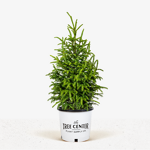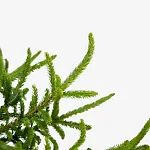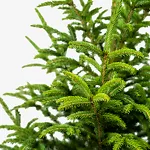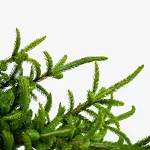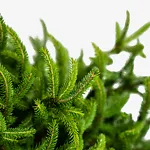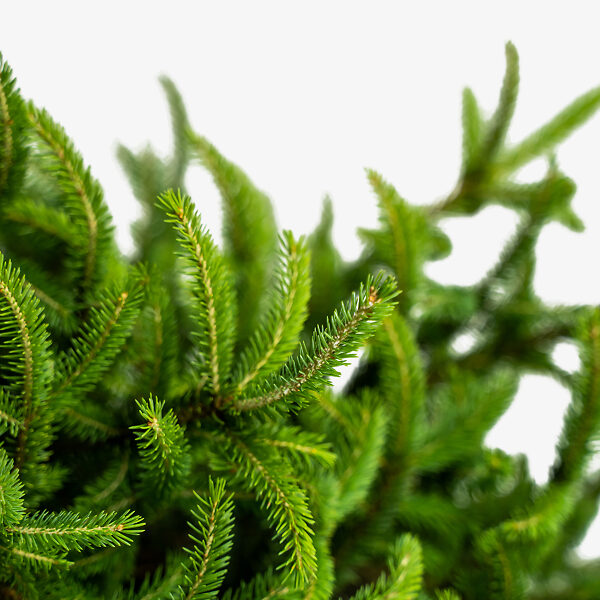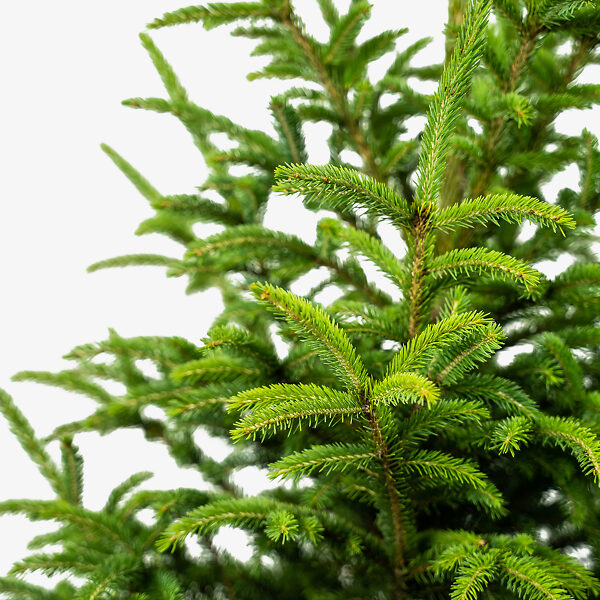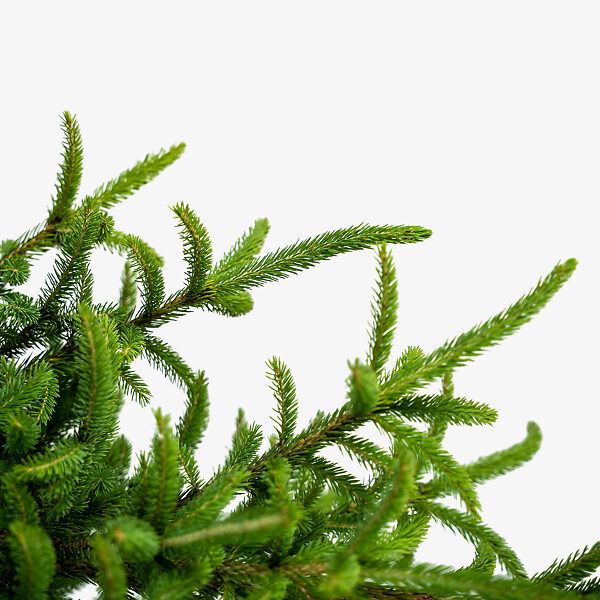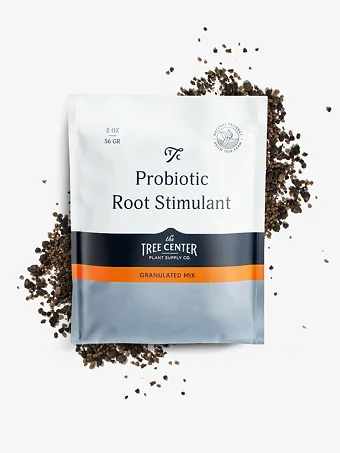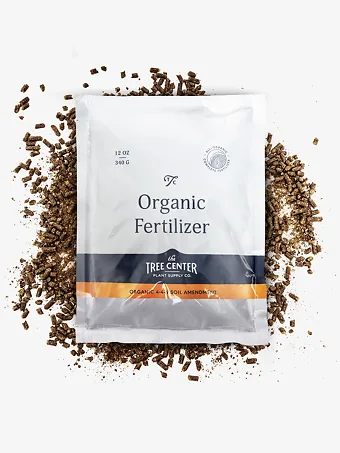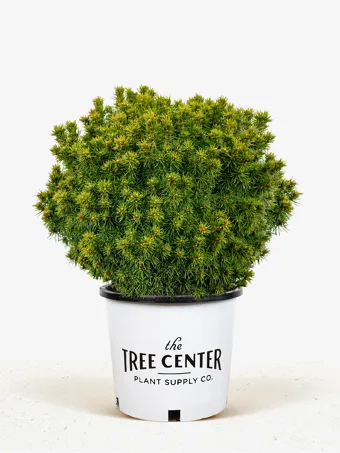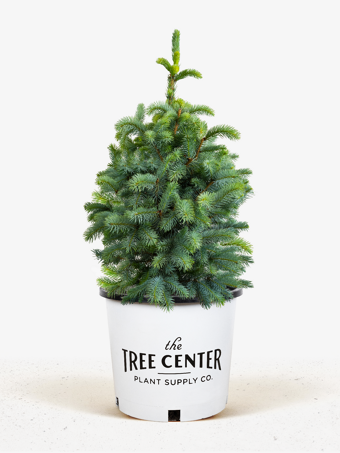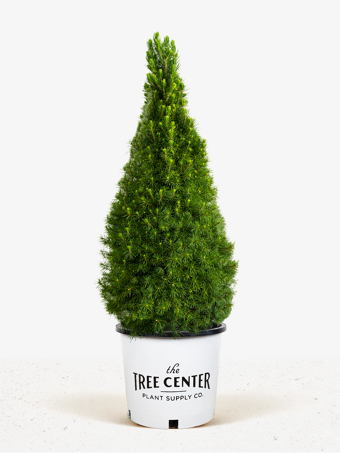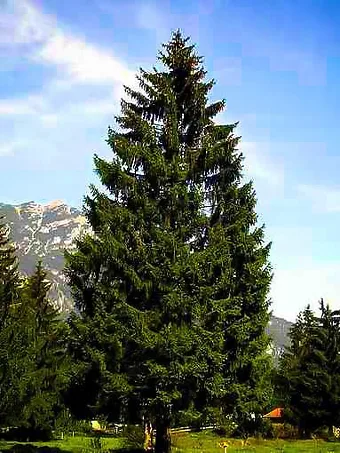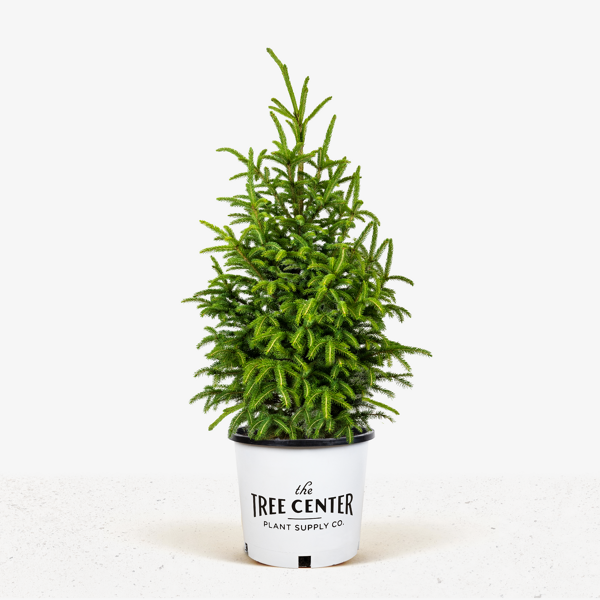
Black Hills Spruce
Picea glauca var. densataView more from Spruce Trees
Black Hills Spruce
Picea glauca var. densata
Select Size
30 day - ARRIVE AND THRIVE™ guaranteeLearn more


Special Features

Botanical Name
Picea glauca var. densata
Outdoor Growing zone
3-6
Mature Height
20-40
Mature Width
10-15
Sun needs
Full Sun, Partial Sun
Black Hills Spruce is considered by all experts to be the very best white spruce you can grow. It is remarkable for its compact growth, reaching 20 to 40 feet tall in time, with a spread of just 10 to 15 feet. It always maintains a perfect pyramidal form to the ground, with no need for any clipping to stay dense and symmetrical. It has attractive evergreen blue-green foliage, and this tree makes the perfect lawn specimen 365 days of the year. Plant it as a screen along your property line, an avenue along a driveway, or as background planting behind your shrubs and flowers. This tree is remarkable for its resistance to cold, and it thrives in areas with cold winters and cool summers.
- The very best variety of white spruce you can grow
- Compact, perfectly-pyramidal growth needs no clipping
- Attractive blue-green evergreen foliage
- Very cold resistant to minus 40
- Grows in a wide range of soils
Plant your Black Hills Spruce in any well-drained soil. Once established it is moderately drought resistant, and it is rarely bothered by pests or diseases. It is hardy to minus 40 degrees, yet grows at a good pace, reaching 10 feet tall within 10 years. It grows in both sun and light shade and requires no care to always be a handsome addition to your garden planting. When you want spruce trees, choose the acknowledged best variety – Black Hills Spruce.
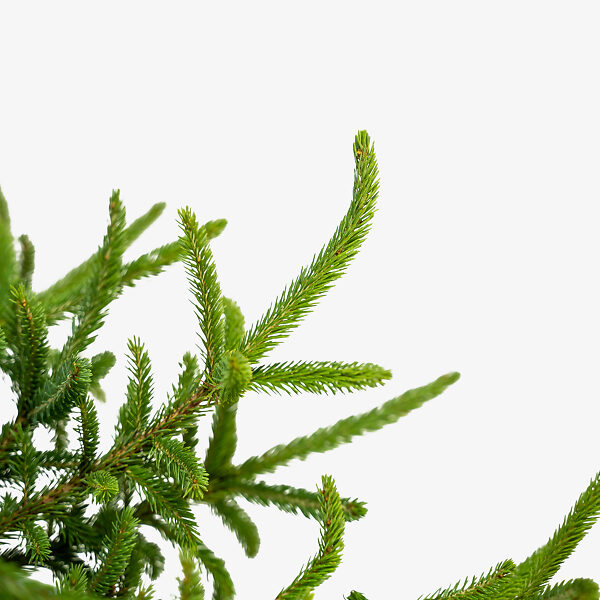
If you live in the colder parts of the country, then you are probably already familiar with spruce trees. These upright, conical-shaped evergreens are extremely cold hardy, and they form an integral part of garden landscapes and public places throughout the north. For gardens, the best spruce trees are compact and dense, needing no trimming to always look beautiful and garden-worthy. White Spruce is a popular variety, with dense branches covered in short, blue-green needles that are covered with a white coating. Of all the White Spruce, everyone agrees that the rare and special Black Hills Spruce is the very best form to grow in your garden.
After much searching, here at The Tree Center we have found a source for this tree, and we are proud to offer it to you. Black Hills Spruce is considered by all gardening experts to be the very best White Spruce you can choose. It grows a little more slowly, so it is very suitable for smaller gardens, or smaller spaces in large gardens. It has a beautiful, natural conical shape and neat form, so it doesn’t need clipping to always look perfect. It also had better needle color than other White Spruce, in a more attractive, brighter green to blue-green color.
Growing Black Hills Spruce Trees
Black Hills Spruce grows steadily into a dense, symmetrical cone-shaped tree. In 10 years it will be close to 10 feet tall, and it will reach 20 to 25 feet in height, with a spread of around 10 feet. Over time it may reach as much as 40 feet, and 15 feet across. When choosing a planting spot, it is important to allow enough room for its width – the stem should be at least 5 feet from walls, fences, paths or driveways. Otherwise you will lose the beautiful balanced shape of this tree, which would be a great waste.
Uses on Your Property
Black Hills Spruce is an excellent plant to use as a lawn specimen. A double row, spaced perhaps 20 feet apart, would create a grand entrance along a drive. For a privacy screen where you don’t need a great deal of height, this tree would be ideal. Use it as well towards the back of your larger shrub beds, where it makes the perfect evergreen background, attractive at all seasons. In cold areas the presence of dense evergreens around the edge of your garden or beds provides shelter from the coldest parts of winter, and allows your other plants to grow much better.
Planting Location
Plant Black Hills Spruce in a sunny or lightly shaded place. It grows well in most soils, including poor, low-nutrient ones, but it prefers well-drained soil. When planting in wet areas, raise the soil into a broad mound 6 to 8 inches above the surrounding soil. Although extremely cold tolerant and hardy down to minus 40 degrees, it does not grow well in areas with hot and humid summers. In areas with heavy urban pollution, Colorado Blue Spruce, or compact forms like Baby Blue Spruce or Columnar Blue Spruce, are preferable.
History and Origins of the Black Hills Spruce
The two most common types of spruce seen in gardens are Colorado Spruce (Picea pungens) and White Spruce (Picea glauca). As its name suggests, Colorado Spruce grows in the Rocky Mountains, from Montana and Idaho to New Mexico, usually at high altitudes. White Spruce grows from Alaska into Idaho and Wisconsin, through to New York, and across to Newfoundland. The name ‘glauca’ means white, since the needles of this tree are covered in a white coating. Confusingly, Colorado spruce is most admired for forms with silvery-blue needles, and the names of several of these contain the word ‘glauca’, such as Globe Blue Spruce (Picea pungens ‘Glauca Globosa’). No wonder these two species are often confused!
White Spruce has short, blue-green needles, no more than ¾ of an inch long. Colorado Spruce has needles that are longer – about 1.5 inches long. White Spruce grows into a 40 to 60 foot tree. It is drought-resistant, and it grows well even in poor soils. Like most plants it will grow fastest in moist, richer well-drained soils. It loves cold winters and mild summers, and it is best planted no further south than zone 6. There are many other beautiful evergreens for warmer parts of the country.
In the Black Hills of Dakota, the famous ‘badlands’, and the home of the Lakota people, there grows a unique form of White Spruce. It is called Picea glauca var. densata, in recognition of it being a distinct variety. Sometimes it is simply called ‘Densata’. Although only found in a small area, this special tree has been propagated from stem cuttings, and is considered by experts to be the best form of White Spruce for gardens.
With its compact habit, dense growth and elegant pyramidal form, it is much more attractive than common White Spruce grown from seed. Those seedling trees may be cheaper, but they are very inferior, so choose the best – it always pays. Our trees are the true Black Hills Spruce, grown for us by experts, so you will be very happy with the mature look of your new trees. There is a very high demand for this tree, so order now while our limited stocks last, or you may easily be disappointed.
